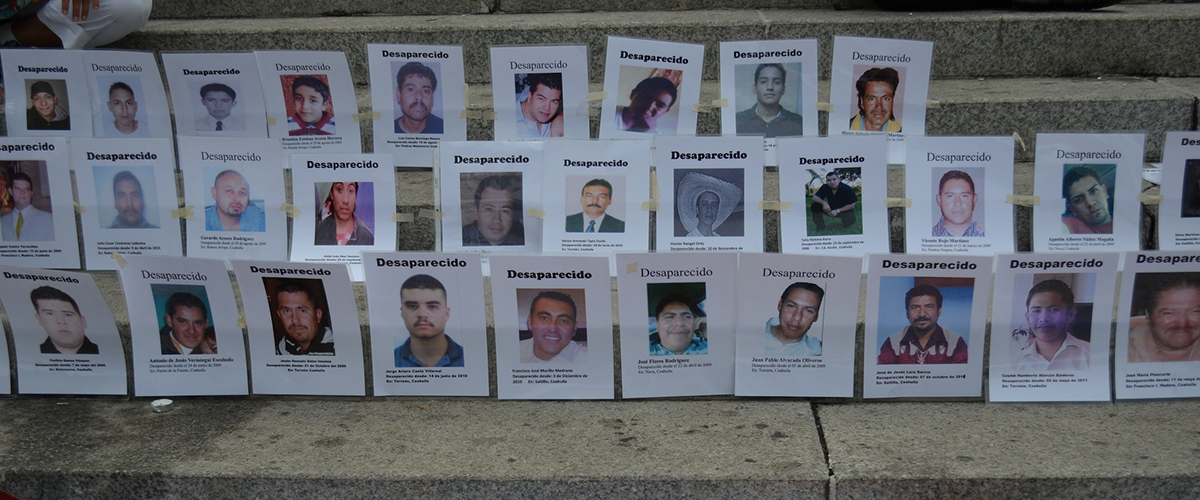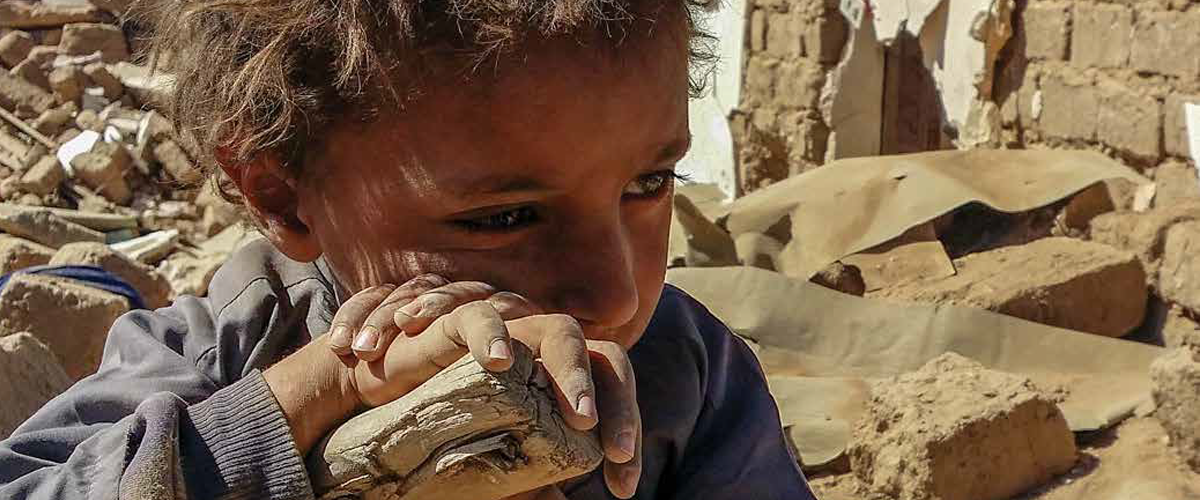Enforced disappearance has frequently been used as a strategy to spread terror within the society. The feeling of insecurity generated by this practice is not limited to the close relatives of the disappeared, but also affects their communities and society as a whole.
Enforced disappearance has become a global problem and is not restricted to a specific region of the world. Once largely the product of military dictatorships, enforced disappearances can nowadays be perpetrated in complex situations of internal conflict, especially as a means of political repression of opponents. Of particular concern are:
- the ongoing harassment of human rights defenders, relatives of victims, witnesses and legal counsel dealing with cases of enforced disappearance;
- the use by States of counter-terrorist activities as an excuse for breaching their obligations;
- and the still widespread impunity for enforced disappearance.
Special attention must also be paid to specific groups of especially vulnerable people, like children and people with disabilities.
On 21 December 2010, by its resolution 65/209 the UN General Assembly expressed its deep concern about the increase in enforced or involuntary disappearances in various regions of the world, including arrest, detention and abduction, when these are part of or amount to enforced disappearances, and by the growing number of reports concerning harassment, ill-treatment and intimidation of witnesses of disappearances or relatives of persons who have disappeared.
By the same resolution the Assembly welcomed the adoption of the International Convention for the Protection of All Persons from Enforced Disappearance, and decided to declare 30 August the International Day of the Victims of Enforced Disappearances, to be observed beginning in 2011.


 Since nuclear weapons testing began on 16 July 1945, nearly 2,000 have taken place. Early on, having nuclear weapons was seen as a measure of scientific sophistication or military might, with little consideration given to the devastating effects of testing on human life, let alone the dangers of nuclear fallout from atmospheric tests. Hindsight and history have shown us the terrifying and tragic effects of nuclear weapons testing, especially when controlled conditions go awry, and in light of the far more powerful and destructive nuclear weapons that exist today.
Since nuclear weapons testing began on 16 July 1945, nearly 2,000 have taken place. Early on, having nuclear weapons was seen as a measure of scientific sophistication or military might, with little consideration given to the devastating effects of testing on human life, let alone the dangers of nuclear fallout from atmospheric tests. Hindsight and history have shown us the terrifying and tragic effects of nuclear weapons testing, especially when controlled conditions go awry, and in light of the far more powerful and destructive nuclear weapons that exist today.
 The night of 22 to 23 August 1791, in Santo Domingo (today Haiti and the Dominican Republic) saw the beginning of the uprising that would play a crucial role in the abolition of the transatlantic slave trade.
The night of 22 to 23 August 1791, in Santo Domingo (today Haiti and the Dominican Republic) saw the beginning of the uprising that would play a crucial role in the abolition of the transatlantic slave trade. Around the world, conflict is exacting a massive toll on people’s lives. Trapped in wars that are not of their making, millions of civilians are forced to hide or run for their lives. Children are taken out of school, families are displaced from their homes, and communities are torn apart, while the world is not doing enough to stop their suffering. At the same time, health and aid workers – who risk their lives to care for people affected by violence – are increasingly being targeted.
Around the world, conflict is exacting a massive toll on people’s lives. Trapped in wars that are not of their making, millions of civilians are forced to hide or run for their lives. Children are taken out of school, families are displaced from their homes, and communities are torn apart, while the world is not doing enough to stop their suffering. At the same time, health and aid workers – who risk their lives to care for people affected by violence – are increasingly being targeted.
 On 17 December 1999, in its
On 17 December 1999, in its 
 There are an estimated 370 million indigenous people in the world, living across 90 countries. They make up less than 5 per cent of the world’s population, but account for 15 per cent of the poorest. They speak an overwhelming majority of the world’s estimated 7,000 languages and represent 5,000 different cultures.
There are an estimated 370 million indigenous people in the world, living across 90 countries. They make up less than 5 per cent of the world’s population, but account for 15 per cent of the poorest. They speak an overwhelming majority of the world’s estimated 7,000 languages and represent 5,000 different cultures.